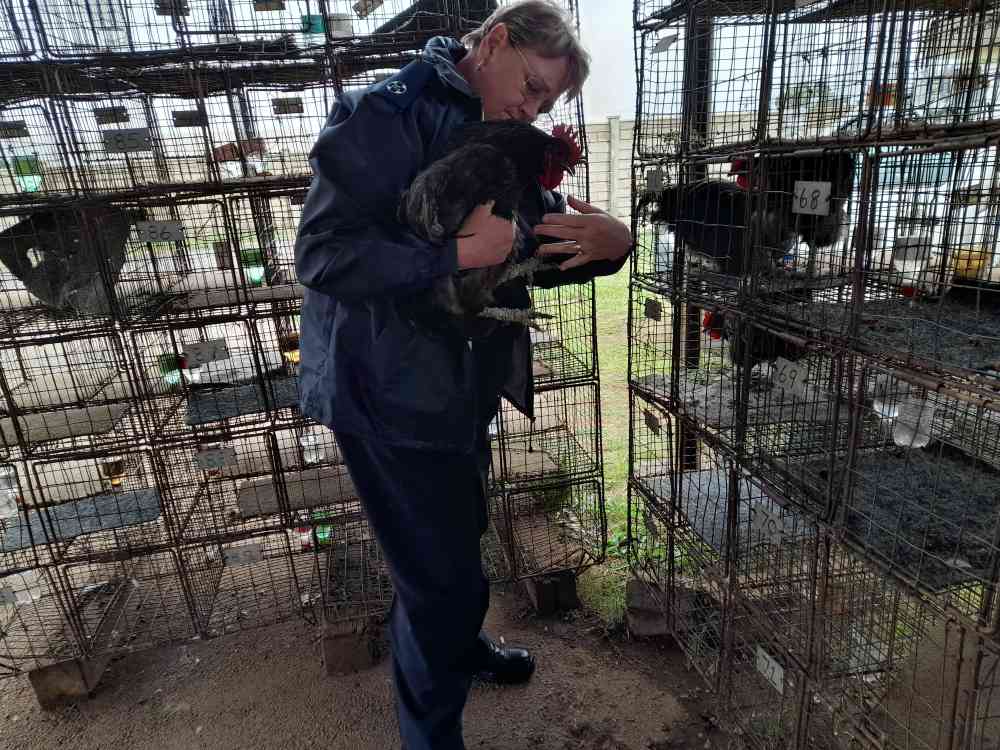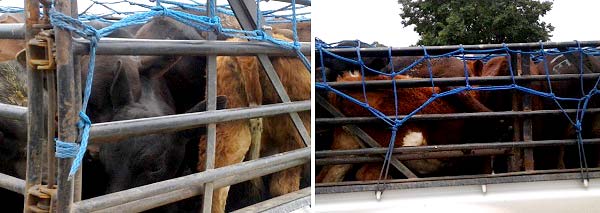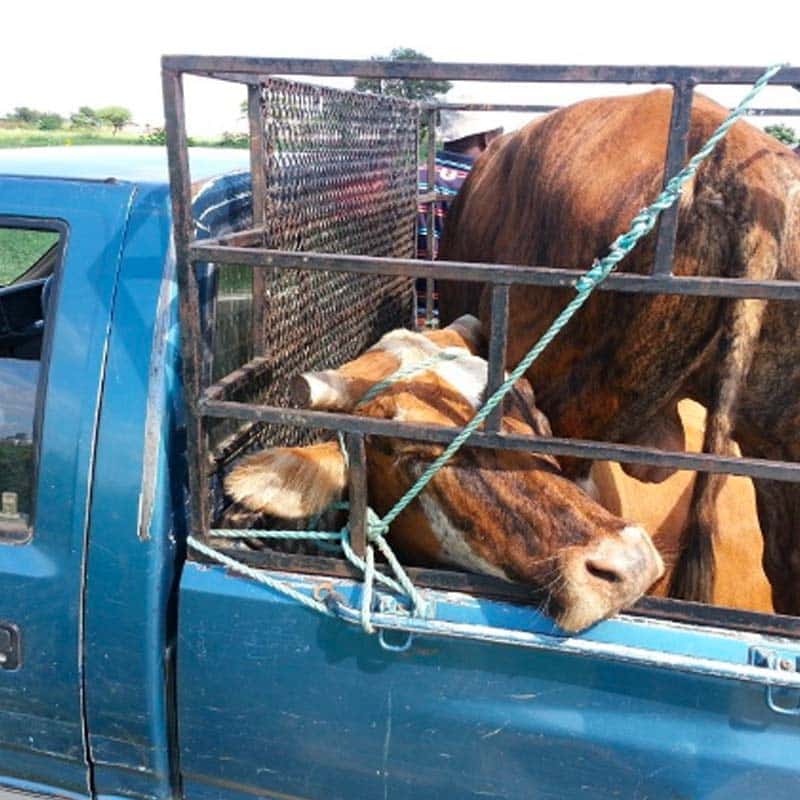Thousands of farm animals are traded on a daily basis across South Africa at formal and informal saleyards, hawking/vending sites and livestock pounds. These animals are transported over long distances from one town to the next, and usually under unacceptable conditions.
The conditions at the saleyards are equally unacceptable with livestock having to stand in dirty conditions and muddy lairages or kraals. The animals are generally exhausted from their journeys and have to endure standing the entire duration they spend at the auction or are forced to lie in urine/faeces and water/muddy conditions when they can no longer stand the stress of exhaustion.
Unsuitable vehicles, incorrect restraining and handling and lack of treatment for injured farm animals is by far the greatest welfare concerns encountered at saleyards, and hawking/vending sites. Vehicles and/or trailers seldom have gridding or non-slip flooring and this poses a threat as the animals could fall during sudden braking of the vehicle, resulting in serious injury or death. Cattle are generally restrained by their horns tied down to metal bars on the vehicles. Sheep, goats and other small animals are usually tethered by all four limbs and stuffed into car boots or into vehicles which do not afford adequate ventilation. The same generally applies for transportation of poultry from cull outlets or hawking sites.

Two South African National Standards (SANS) were published in 2014 which are guidelines for the humane treatment of livestock. These National Standards are read together with national legislation (Animals Protection Act and other relevant legislation) making them supplementary legislation.
- SANS 1469:2014 Humane handling and facilities for the protection of livestock at shows, auction sales, vending sites and livestock pounds
- SANS 1488:2014 Humane transportation of livestock by road


Overcrowding of Vehicles is Commonplace
Saleyard owners and auctioneers need to take the responsibility to ensure that the welfare of animals is not compromised at these facilities.
Failure to comply with legislation may lead to prosecution in terms of the Animals Protection Act.
Our Farm Animal Protection Unit Inspectors undertake inspections at saleyards, hawking/vending sites and livestock pounds.

